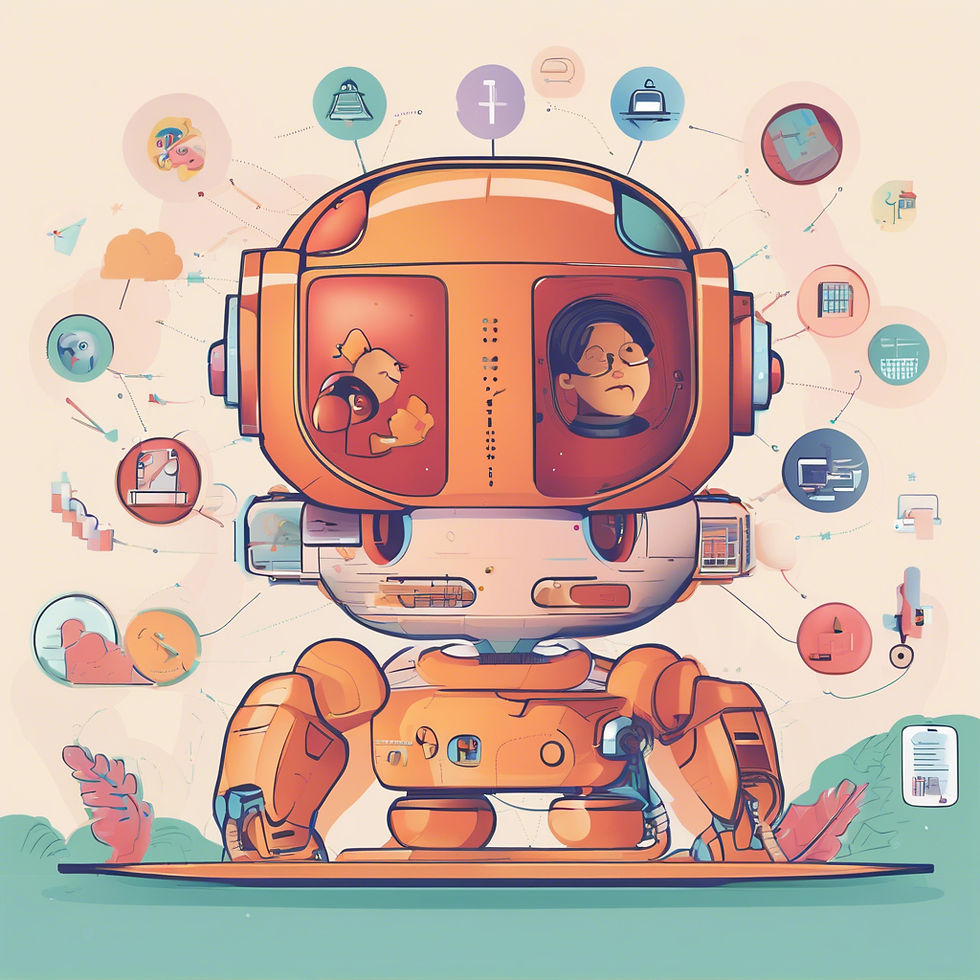5 Common AI Myths — And Why They're Wrong
- Jone

- Feb 25, 2025
- 2 min read
Artificial Intelligence (AI) is everywhere these days, from your smartphone's voice assistant to those eerily accurate movie recommendations. But with its rise, a slew of myths have popped up. Let's have some fun debunking five of the most common misconceptions about AI.

Myth 1: AI Is a Mysterious Black Box
Ever heard someone say, "AI is like magic; no one really knows how it works"? While AI can be complex, it's not an enigma. Researchers and engineers design AI systems with specific algorithms and data. Efforts in explainable AI are making these systems more transparent, helping us understand their decisions better.
Myth 2: AI Will Steal All Our Jobs
Cue the sci-fi movies where robots take over the world. In reality, AI is more about collaboration than domination. AI automates repetitive tasks, freeing humans to focus on creative and strategic activities. It's a tool to enhance our work, not replace it.
Myth 3: AI Is Only for Tech Giants
Think AI is exclusive to companies with deep pockets and massive R&D departments? Think again. With the rise of accessible AI tools and platforms, businesses of all sizes can leverage AI to improve operations and customer experiences.
Myth 4: AI Is Infallible
Some folks believe AI is always accurate and unbiased. But AI systems learn from data, and if that data has biases, the AI can reflect them. It's crucial to continuously monitor and train AI systems to ensure fairness and accuracy.
Myth 5: AI Can Think and Feel
Despite what Hollywood portrays, AI doesn't possess consciousness or emotions. AI can process information and mimic certain tasks, but it doesn't have self-awareness or feelings.
This article was crafted in collaboration with a Large Language Model (LLM), showcasing how AI can assist in content creation. By blending human insight with AI capabilities, we aim to provide clear and engaging content on emerging technological trends.
References



Comments